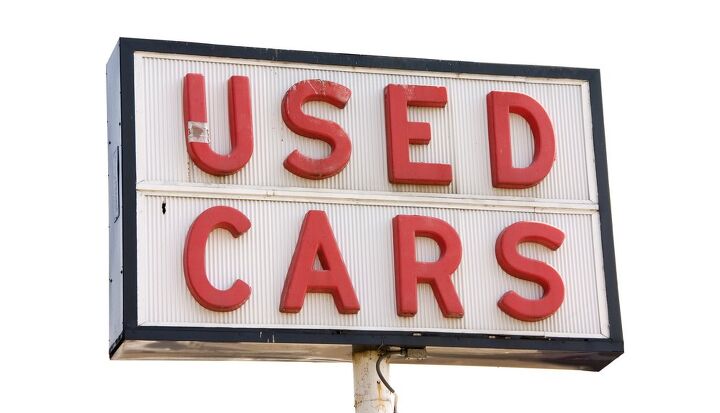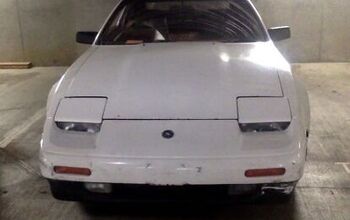AutoNation Wildly Profitable While Car Prices Are Grotesquely High

With automobile prices ballooning to egregiously high levels, one might assume that the industry would be in rough shape. But they’d be dead wrong. Supply chain disruptions have actually created a captive market where consumers are desperate to lay their hands on whatever products are available. In the automotive realm, this has allowed retailers to set ludicrous prices and rake in larger profits per transaction. While inflation may eventually catch up to these entities, the gravy train is currently parked at the station and dousing big business with its warm, brown effluence.
Nobody knows this better than the folks at AutoNation. Because the company just released a quarterly profit report that blew its rosiest projections out of the water. Net income its ongoing operations was $361.7 million for Q3 2021, double the $182.6 million witnessed in Q3 of 2020, while revenue rose 18 percent to $6.4 billion.
According to Reuters, analysts had anticipated the company to report a profit of $4.2 per share on net revenue of $6.2 billion. But AutoNation actually ended up closer to $5.12 per share, thanks largely to how high it can now price secondhand vehicles.
From Reuters:
AutoNation, which reported another quarter of record income, said new vehicle inventory remained at historically low levels leading to a marginal rise in new vehicle revenue in the third quarter ended Sept. 30.
Used vehicle revenue, on the other hand, jumped 53 [percent] to $2.32 billion compared to $1.51 billion a year earlier.
AutoNation Chief Executive Mike Jackson told Reuters that tight inventories and high prices are leading some customers to defer buying a new vehicle. However, Jackson said more customers are using AutoNation’s websites to track vehicles the company’s stores have coming to them in the next 30 to 60 days, and reserving a car or truck before it arrives.
“We’re now at the limit of where can take inventories down to,” Jackson said. “This could be the trough on the disruption, and early next year shipments could improve.”
There are no guarantees, however. Supply chains remain upended due to pandemic-related restrictions and manufacturers are still suppressing output due to the chip shortage. There are even claims that the industry is cutting production intentionally to reduce overhead and artificially spur demand to keep prices high — using the chip shortage as a convenient excuse.
Whatever the reality, vehicle demand is likely to remain high for the foreseeable future and businesses are keen to capitalize on that fact. Jackson confessed that “pent-up demand is building” and assumed the hardcore holdouts would eventually return to the dealership once inventories stabilized a bit. Considering people across the globe have only become more interested in private vehicle ownership as the pandemic has dragged on, there’s reason to believe him. But we’ll have to see how things shake down in 2022.
[Image: David Touchtone/Shutterstock]

A staunch consumer advocate tracking industry trends and regulation. Before joining TTAC, Matt spent a decade working for marketing and research firms based in NYC. Clients included several of the world’s largest automakers, global tire brands, and aftermarket part suppliers. Dissatisfied with the corporate world and resentful of having to wear suits everyday, he pivoted to writing about cars. Since then, that man has become an ardent supporter of the right-to-repair movement, been interviewed on the auto industry by national radio broadcasts, driven more rental cars than anyone ever should, participated in amateur rallying events, and received the requisite minimum training as sanctioned by the SCCA. Handy with a wrench, Matt grew up surrounded by Detroit auto workers and managed to get a pizza delivery job before he was legally eligible. He later found himself driving box trucks through Manhattan, guaranteeing future sympathy for actual truckers. He continues to conduct research pertaining to the automotive sector as an independent contractor and has since moved back to his native Michigan, closer to where the cars are born. A contrarian, Matt claims to prefer understeer — stating that front and all-wheel drive vehicles cater best to his driving style.
More by Matt Posky
Latest Car Reviews
Read moreLatest Product Reviews
Read moreRecent Comments
- Varezhka Maybe the volume was not big enough to really matter anyways, but losing a “passenger car” for a mostly “light truck” line-up should help Subaru with their CAFE numbers too.
- Varezhka For this category my car of choice would be the CX-50. But between the two cars listed I’d select the RAV4 over CR-V. I’ve always preferred NA over small turbos and for hybrids THS’ longer history shows in its refinement.
- AZFelix I would suggest a variation on the 'fcuk, marry, kill' game using 'track, buy, lease' with three similar automotive selections.
- Formula m For the gas versions I like the Honda CRV. Haven’t driven the hybrids yet.
- SCE to AUX All that lift makes for an easy rollover of your $70k truck.


































Comments
Join the conversation
In the end, the buying public always suffers. Never feel sorry for car sellers
i dont feel bad for the buyers either, unless something happened that they NEED a car